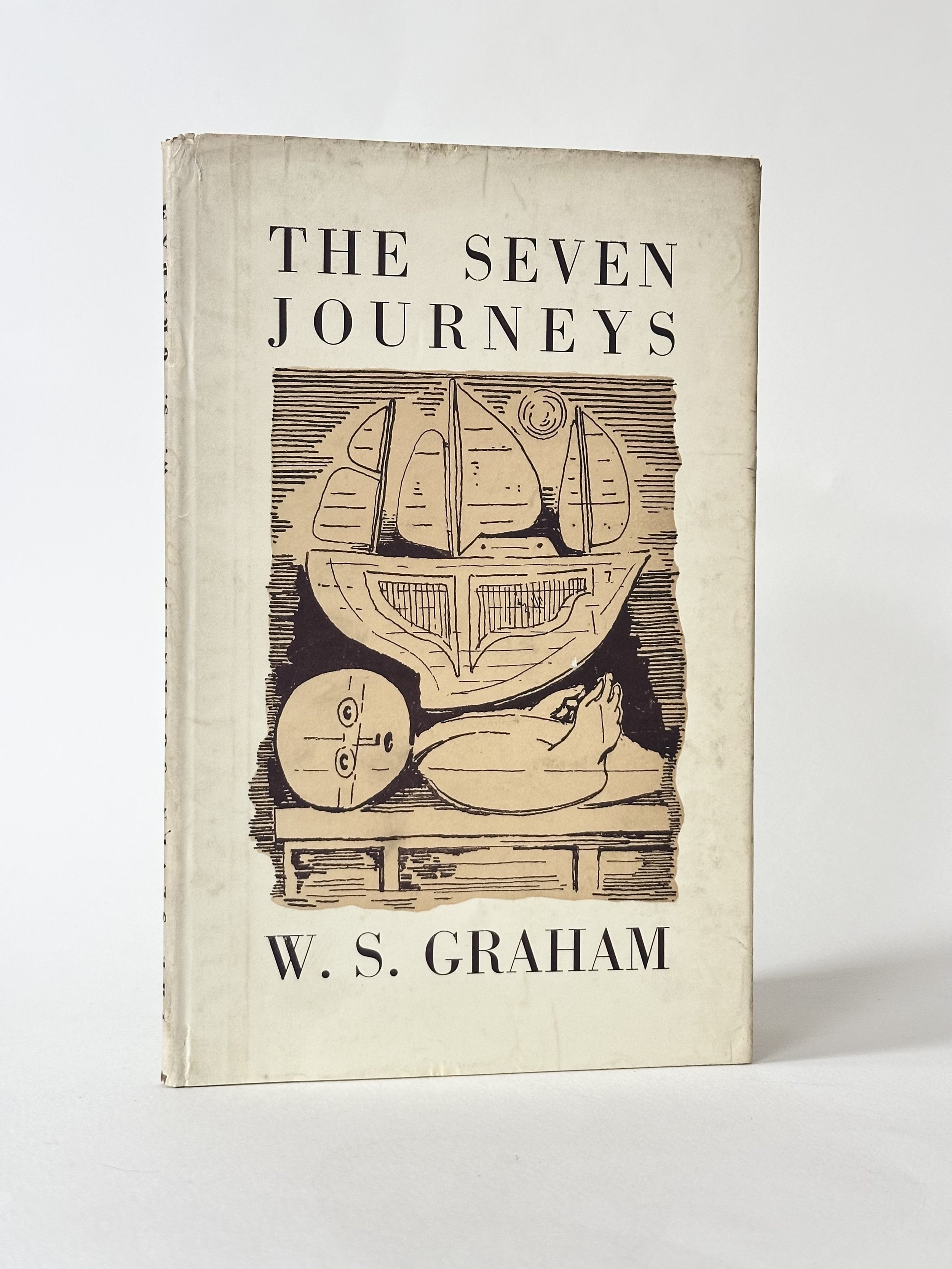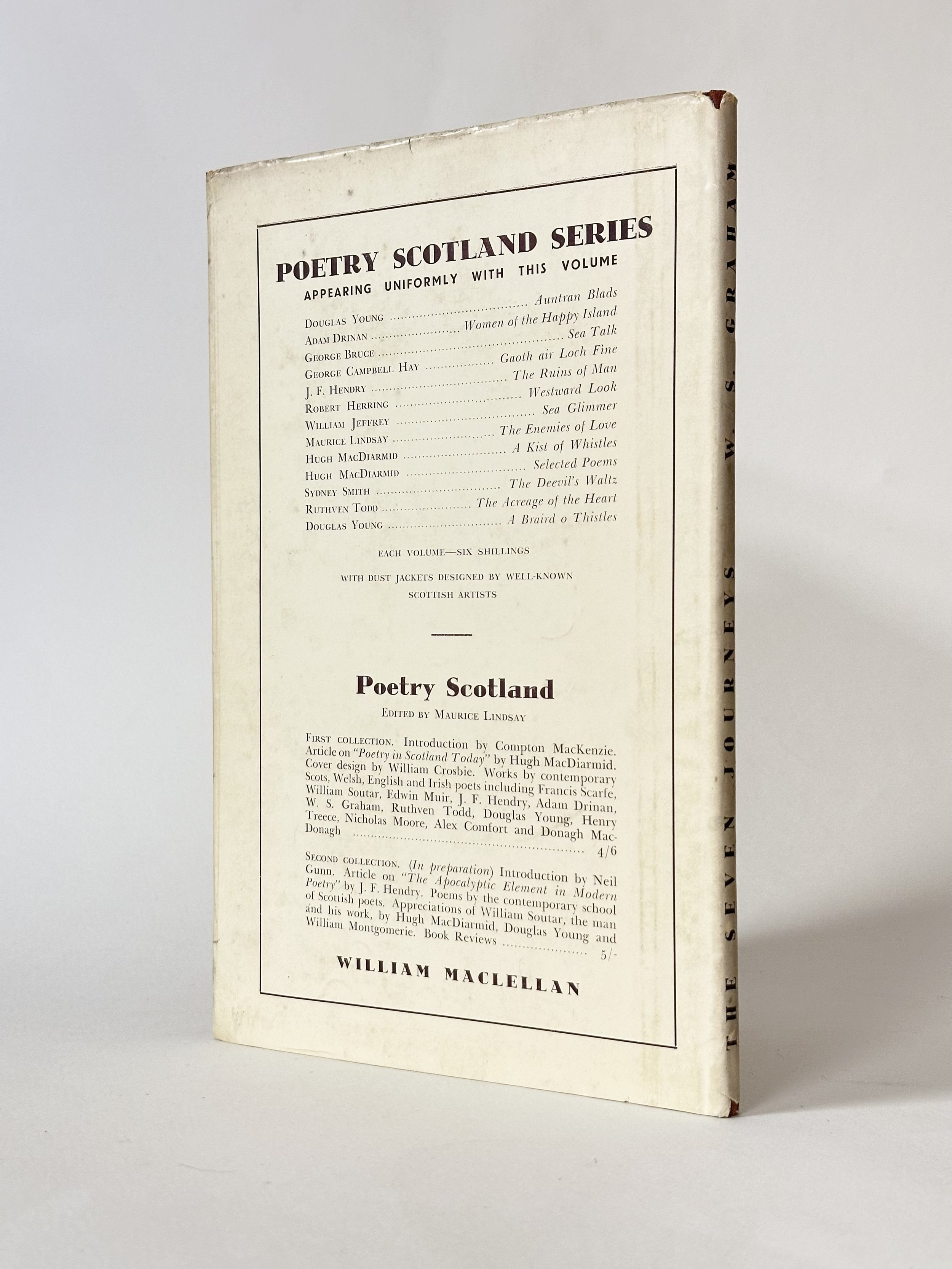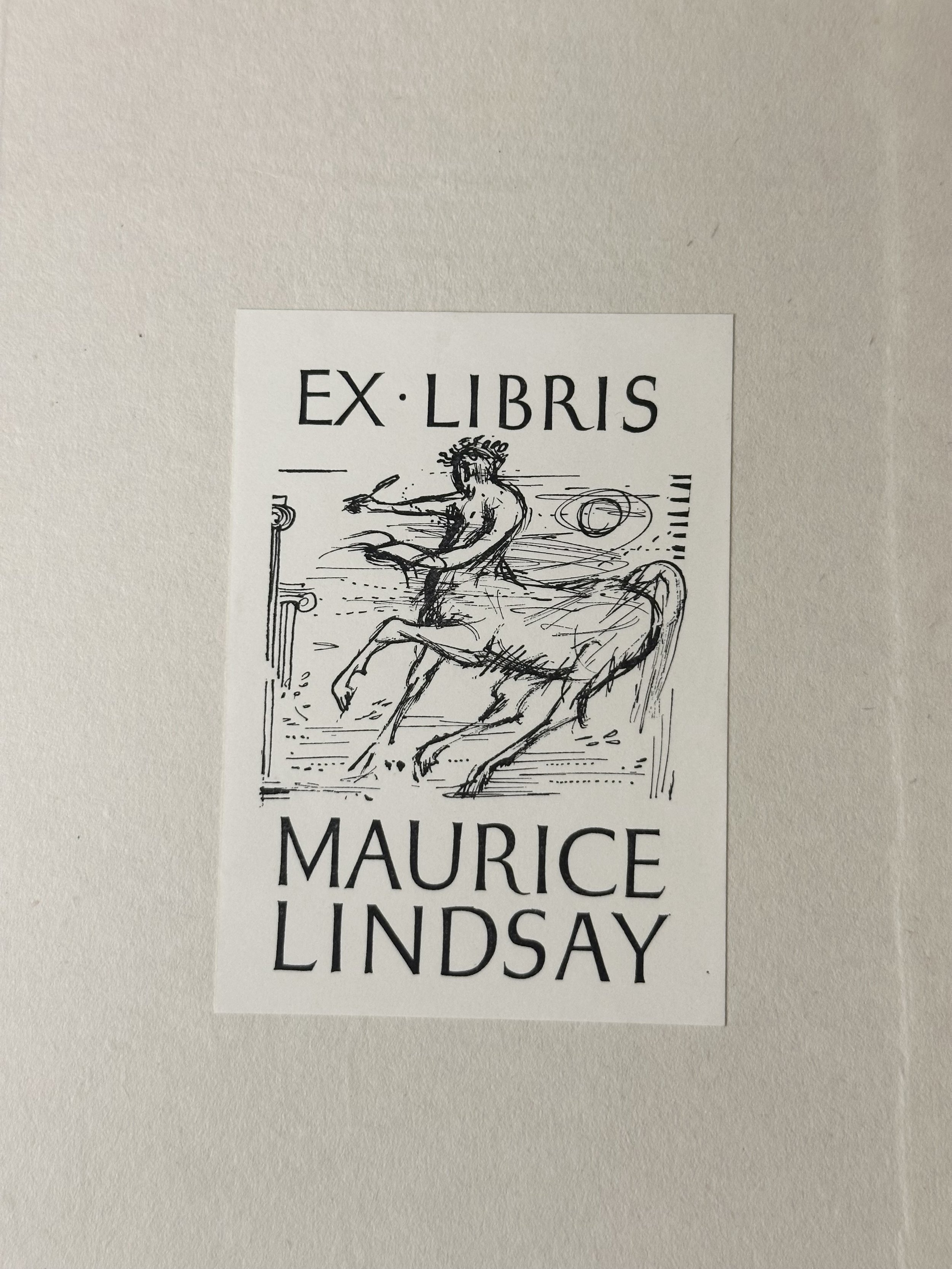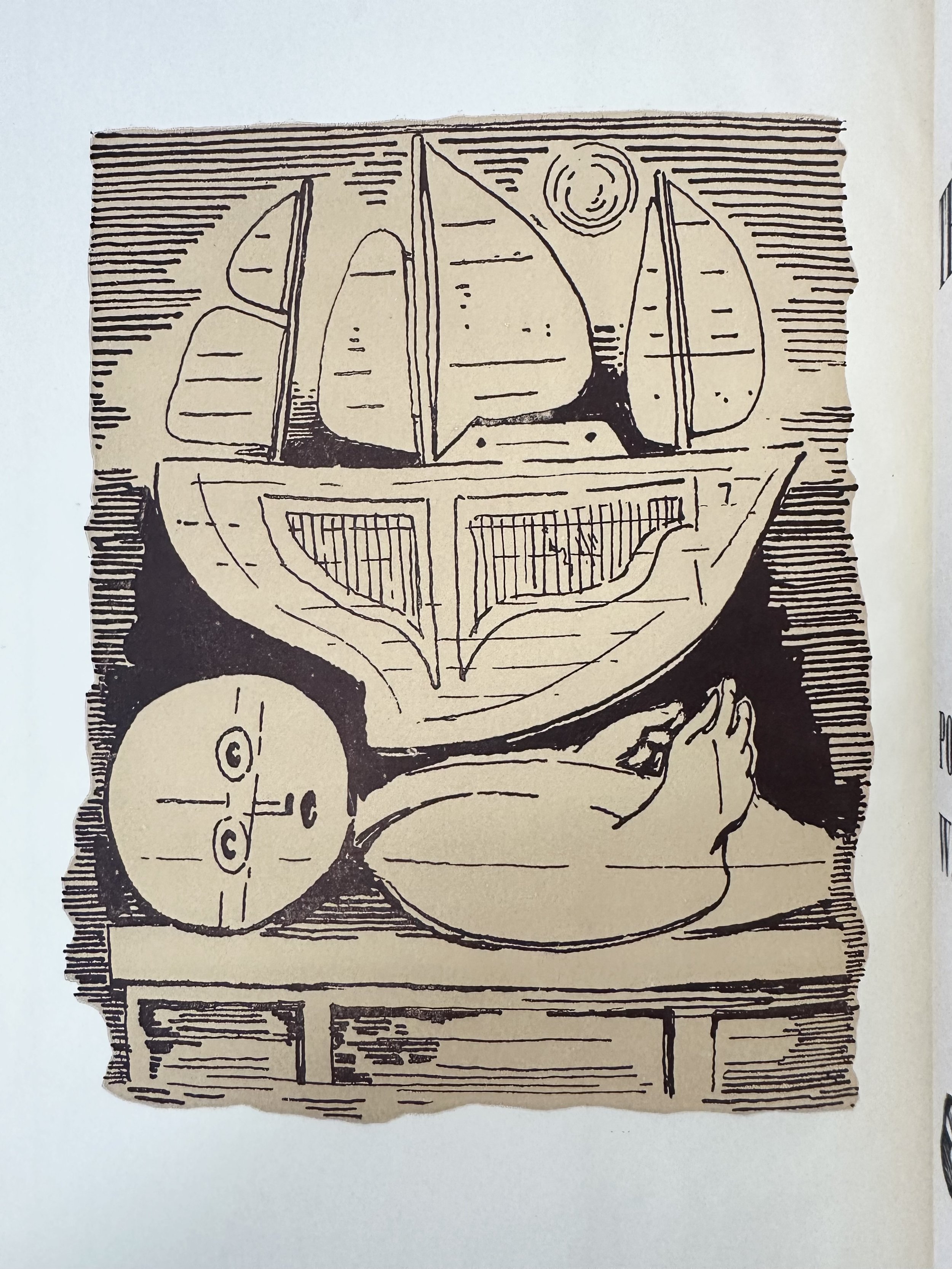 Image 1 of 4
Image 1 of 4

 Image 2 of 4
Image 2 of 4

 Image 3 of 4
Image 3 of 4

 Image 4 of 4
Image 4 of 4





GRAHAM, W. S. The Seven Journeys
GRAHAM, William Sydney. The Seven Journeys. Glasgow: William McLennan. 1944. Thin 8vo. First edition and only. Publisher’s quarter brown cloth over white boards lettered in gilt to spine, in the wonderfully evocative dust jacket designed by Robert Frame, who also provided the matching frontispiece. From the library of Maurice Lindsay, respected Scottish poet and editor of, among other things, Poetry Scotland, which included poems by Graham. A near fine copy, the cloth lightly marked and slightly bumped to corners and spine panel, minor. The binding tight, the contents fine throughout. The dust jacket price-clipped, lightly marked at white sections of the panels, the edges just a trifle bumped but a handsome copy overall.
The poet’s second book and his scarcest—a scholar and associate jokes that though Graham readers know this book must exist, very few have actually seen it. Graham was born in working-class Glasgow, served in the Second World War, indulged in London’s bohemian scene before making Cornwall his home. Though grandly ignored commercially in his own lifetime, he was critically associated with the Neo-romantic poets. His syntax here is often irresistible in a way that exceeds much of what this cataloguer has read of the group, though. After his death, Harold Pinter and others helped to popularise him—interest in him is still growing. This copy likely an association copy; Lindsay edited the Poetry Scotland anthology series, hand-picking poems from the wider Poetry of Scotland series, of which this belongs. Scarce.
GRAHAM, William Sydney. The Seven Journeys. Glasgow: William McLennan. 1944. Thin 8vo. First edition and only. Publisher’s quarter brown cloth over white boards lettered in gilt to spine, in the wonderfully evocative dust jacket designed by Robert Frame, who also provided the matching frontispiece. From the library of Maurice Lindsay, respected Scottish poet and editor of, among other things, Poetry Scotland, which included poems by Graham. A near fine copy, the cloth lightly marked and slightly bumped to corners and spine panel, minor. The binding tight, the contents fine throughout. The dust jacket price-clipped, lightly marked at white sections of the panels, the edges just a trifle bumped but a handsome copy overall.
The poet’s second book and his scarcest—a scholar and associate jokes that though Graham readers know this book must exist, very few have actually seen it. Graham was born in working-class Glasgow, served in the Second World War, indulged in London’s bohemian scene before making Cornwall his home. Though grandly ignored commercially in his own lifetime, he was critically associated with the Neo-romantic poets. His syntax here is often irresistible in a way that exceeds much of what this cataloguer has read of the group, though. After his death, Harold Pinter and others helped to popularise him—interest in him is still growing. This copy likely an association copy; Lindsay edited the Poetry Scotland anthology series, hand-picking poems from the wider Poetry of Scotland series, of which this belongs. Scarce.
GRAHAM, William Sydney. The Seven Journeys. Glasgow: William McLennan. 1944. Thin 8vo. First edition and only. Publisher’s quarter brown cloth over white boards lettered in gilt to spine, in the wonderfully evocative dust jacket designed by Robert Frame, who also provided the matching frontispiece. From the library of Maurice Lindsay, respected Scottish poet and editor of, among other things, Poetry Scotland, which included poems by Graham. A near fine copy, the cloth lightly marked and slightly bumped to corners and spine panel, minor. The binding tight, the contents fine throughout. The dust jacket price-clipped, lightly marked at white sections of the panels, the edges just a trifle bumped but a handsome copy overall.
The poet’s second book and his scarcest—a scholar and associate jokes that though Graham readers know this book must exist, very few have actually seen it. Graham was born in working-class Glasgow, served in the Second World War, indulged in London’s bohemian scene before making Cornwall his home. Though grandly ignored commercially in his own lifetime, he was critically associated with the Neo-romantic poets. His syntax here is often irresistible in a way that exceeds much of what this cataloguer has read of the group, though. After his death, Harold Pinter and others helped to popularise him—interest in him is still growing. This copy likely an association copy; Lindsay edited the Poetry Scotland anthology series, hand-picking poems from the wider Poetry of Scotland series, of which this belongs. Scarce.
